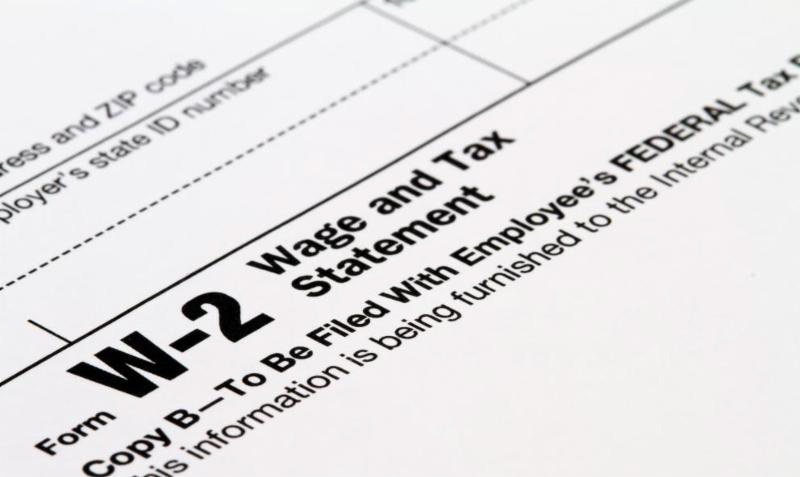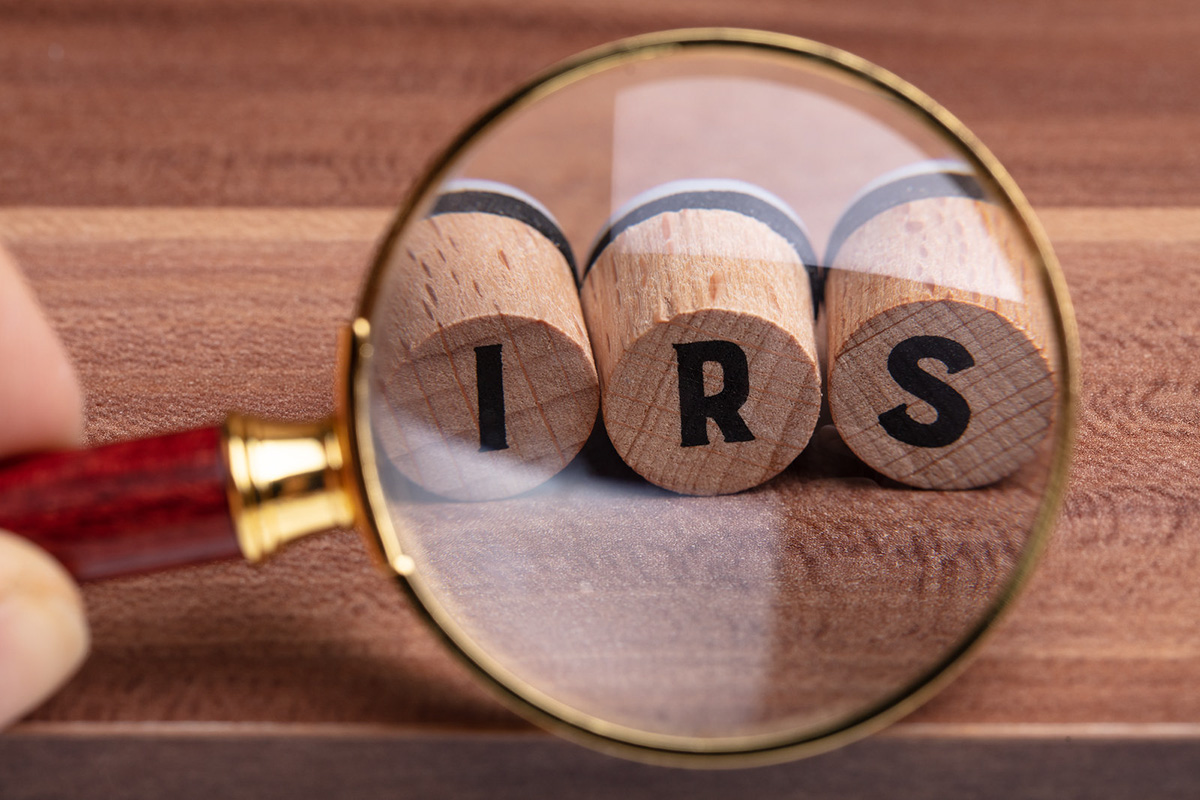
With tax season now officially underway, you’ll start seeing more and more tax documents show up in your inbox or mailbox. And this year, there are some unusual ones arriving, so outlined here is what to expect. Plus, there is a great article discussing common areas of tax surprises and some great ideas for you if you have a home-based hobby or business.
Please enjoy the information and pass along articles of interest to all your family and friends. And as always, please call if you have questions or need help.

Easy-to-Overlook Tax Documents
This year is a little more challenging.
With tax season now officially underway, here are several tax documents that may be easy to miss in your mailbox or inbox:
Child tax credit letter
From July through December 2021, the IRS paid out 50% of projected child tax credit payments to qualified households. The IRS is sending out a recap of these advance payments in Letter 6419 that you can use to correctly account for these payments on your tax return. This letter should have arrived in your mailbox by late January.
Stimulus payment letter
The IRS issued millions of economic impact payments in 2021. The IRS is mailing a summary of these payments you received in Letter 6475. As with the child tax credit letter, you can use this letter to accurately report your economic impact payments on your tax return. This letter also should have arrived in your mailbox by late January.
Identification PIN
The IRS may have assigned you an Identity Protection PIN (IP PIN) to help protect your identity. An IP PIN is a six-digit number that prevents someone else from filing a tax return using your Social Security number or Individual Taxpayer Identification Number. This IP PIN is known only to you and the IRS. If you are a confirmed victim of tax-related identity theft and the IRS has resolved your tax account issues, the IRS will mail you a CP01A Notice with your new IP PIN each year.
Corrected tax forms
If an error is discovered on a tax form you’ve already received, a corrected version will be created, then mailed to both you and the IRS. You can also request a corrected tax form if you believe you found an error. Here are some of the forms you might see with corrections:
- Form W-2 from your employer that shows corrected wages, salary and taxes withheld
- Form 1099-INT or Form 1099-DIV from your investment broker that shows a revision in interest and dividend income
- Form 1099-NEC from a client to whom you provide services
- Form 1098 that shows how much mortgage or student loan interest you’ve paid
You may not be aware you were issued a corrected tax form until it shows up in your mailbox (or inbox). If you do receive a corrected form, don’t throw the old version away! Save both the original version and corrected version in case either are needed for future reference. Often the ease of filing your tax return is dependent on having the correct information, so remember to look for everything, including these often overlooked forms.

Reminders
– Organize filing records (1099s, 1098s, W-2s, etc.)
– Schedule tax appointment meeting, in person or via Zoom/Phone Call
– Begin tax planning for 2022

I Owe Tax on That?
5 Surprising Taxable Items
Wages and self-employment earnings are taxable, but what about the random cash or financial benefits you receive through other means? If something of value changes hands, you can bet the IRS considers a way to tax it. Here are five taxable items that might surprise you:
- Scholarships and financial aid. Applying for scholarships and financial aid are top priorities for parents of college-bound children. But be careful — if any part of the award your child receives goes toward anything except tuition, it might be taxable. This could include room, board, books, travel expenses or aid received in exchange for work (e.g., tutoring or research).
Tip: When receiving an award, review the details to determine if any part of it is taxable. Don’t forget to review state rules as well. While most scholarships and aid are tax-free, no one needs a tax surprise. - Gambling winnings. Hooray! You hit the trifecta for the Kentucky Derby. But guess what? Technically, all gambling winnings are taxable, including casino games, lottery tickets and sports betting. Thankfully, the IRS allows you to deduct your gambling losses (to the extent of winnings) as an itemized deduction, so keep good records.
Tip: Know when the gambling establishment is required to report your winnings. It varies
by type of betting. For instance, the filing threshold for winnings from fantasy sports betting and horse racing is $600, while slot machines and bingo are typically $1,200. But beware, the gambling facility and state requirements may lower the limit. - Unemployment compensation. Congress gave taxpayers a one-year reprieve in 2021 from paying taxes on unemployment income. Unfortunately, this tax break did not get extended for the 2022 tax year. So unless Congress passes a law extending the 2021 tax break, unemployment will once again be taxable starting with your 2022 tax return.
Tip: If you are collecting unemployment, you can either have taxes withheld and receive the net amount or make estimated payments to cover the tax liability. - Social Security benefits. If your income is high enough after you retire, you could owe income taxes on up to 85% of Social Security benefits you receive.
Tip: Consider if delaying when you start collecting Social Security benefits makes sense for you. Waiting to start benefits means you’ll avoid paying taxes on your Social Security benefits for now, plus you’ll get a bigger payment each month you delay until you reach age 70. - Alimony. Prior to 2019, alimony was generally deductible by the person making alimony payments, with the recipient generally required to report alimony payments received as taxable income. Now the situation is flipped: For divorce and separation agreements executed since December 31, 2018, alimony is no longer deductible by the payer and alimony payments received are not reported as income.
Tip: Alimony payments no longer need to be made in cash. Consider having the low-income earning spouse take more retirement assets such as 401(k)s and IRAs in exchange for reduced alimony payments. This arrangement would allow the higher-earning spouse to make alimony payments by transferring retirement funds without paying income taxes on it.
When in doubt, it’s a good idea to keep accurate records so your tax liability can be correctly calculated and you don’t get stuck paying more than what’s required.

Great Tips for Your Home-Based Business
Home-based businesses can be financially rewarding and provide a certain amount of flexibility with your day-to-day schedule. Here are some tips to keep your business running at full steam.
- Stay on top of accounts receivable. It’s easy to get caught up with fulfilling your business obligations while invoices you’ve sent out go unpaid. Agree to payment terms in advance with new customers and immediately – but politely – communicate with them as soon as they miss a payment deadline. Keep current with regular invoicing and collections.
- Keep your bookkeeping records up to date. You may not realize you have an unpaid invoice that’s several months old unless your bookkeeping is up to date. Keeping accurate books involves more than balancing your bank accounts once a month. In addition to your monitoring your bank accounts, also consistently look at your accounts receivable, accounts payable, any debts (credit card, car loans or other borrowings), and all money you invest in your business. Ask for help if you don’t have enough time to do the bookkeeping yourself, or if you need help properly setting up your bookkeeping software.
- Check on permit requirements. Depending on what type of home-based business you have, you may be required to obtain various permits, licenses, or other registrations. If you have not already done so, check with your town or city for local requirements. The Small Business Administration is also a good source to research information on permits.
- Get insured. Obtain adequate insurance for the type of operation you’ll be running. Besides the insurance required for business activities, you might consider adding a rider to your homeowner’s policy for liability protection should an accident occur on your property.
- Stay on top of technology. While you may not need a top-of-the-line computer, be sure that the technology equipment you use can handle the bandwidth of everything you’ll ask it to do, including video calls, software apps and data storage. Also consider scheduling a time for your internet provider to visit your home to make sure everything is in working order and your security protocols are top notch. Have a back-up plan in place for when a device breaks down, including where you’ll go to have it repaired.
- Cash in on tax breaks. Take advantage of the tax breaks available to home-based businesses, including deductions for supplies, equipment, and vehicle expenses. You may even be able to deduct the cost of your home office, including a pro-rated amount of your real estate taxes and utilities, if certain conditions are met.
- Set aside money to pay your taxes. Ask for help to calculate how much of your incoming cash you should be setting aside to pay your federal, state, and local taxes. Consider opening a separate bank account to transfer your tax money into.
Please feel free to reach out with any questions or concerns you may have.

Cryptocurrency: The IRS is Watching You!
Whether you own cryptocurrency or not, everyone should know the tax rules surrounding this type of property as it becomes more popular. If you have one take away regarding cryptocurrency, it should be this: Remember that Uncle Sam is watching you!
Here’s what you need to know about the IRS and cryptocurrency:
Background
The IRS generally considers cryptocurrency—also referred to as virtual currency or digital currency—to be property, just like stocks and bonds for federal income tax purposes.
Therefore, if you sell cryptocurrency at a gain, it is subject to capital gains tax. Similarly, you may claim a capital loss on the sale or other disposition of cryptocurrency. But that’s not all: Anytime you exchange cryptocurrency for actual currency, goods or services, the IRS says it’s a taxable event.
Say that you hold Bitcoin for longer than one year and then sell it at a gain. The gain is taxable up to 20%. High-income taxpayers may also need to pay a 3.8% surtax on the cryptocurrency gain. Accordingly, you can use a loss from a cryptocurrency sale to offset capital gains plus up to $3,000 of ordinary income. Any excess is carried over to the following tax year.
The IRS Is Watching You!
Cryptocurrency transactions often flew under the radar, but the IRS is now paying much closer attention. Here’s how the IRS is stepping up enforcement efforts:
- Answer a Form 1040 question. The IRS is so concerned about cryptocurrency transactions being reported that they have a cryptocurrency question on Page 1 of your tax return, just below your name. Before filling out any part of your tax return, the IRS wants you to answer a question about whether you received, sold, exchanged, or otherwise disposed of any financial interest in any virtual currency.
- Brokers must report transactions. After 7 years of gently prodding taxpayers to self-report cryptocurrency transactions, Congress has given the green light for the IRS to obtain cost basis and sales proceeds information for all crypto transactions directly from brokers (such as CoinBase, Electrum or Mycelium) or other individuals who regularly provide digital asset transfer services on behalf of other people. Similar to the reporting of stocks and bonds, taxpayers will receive a Form 1099-B from brokers that list all crypto transactions. These new reporting rules are effective beginning January 1, 2023.
- Expanded $10,000 reporting requirement. Businesses that accept virtual currency as payment may be required to report transactions above $10,000 to the IRS beginning January 1, 2023. In an interesting twist, cryptocurrency and other digital assets would be considered cash for purposes of the $10,000 reporting requirement, while the IRS will continue to treat cryptocurrency as real property (and not cash) for tax compliance purposes.
What you need to do
Here are some suggestions for tracking and reporting your cryptocurrency transactions on your tax return:
- Keep up-to-date records. Consider tracking each transaction as they occur throughout the year. You may also want to keep your own transaction ledger as a way to double-check the accuracy of your broker’s statements.
- Set aside money to pay taxes. Consider saving a certain percentage of each cryptocurrency transaction you sell at a gain for taxes you may need to pay.
- Be aware before you dive into cryptocurrency. As you can see, being involved in cryptocurrency may not be for everyone. Wild swings in valuation are common. Reporting requirements are complicated.




